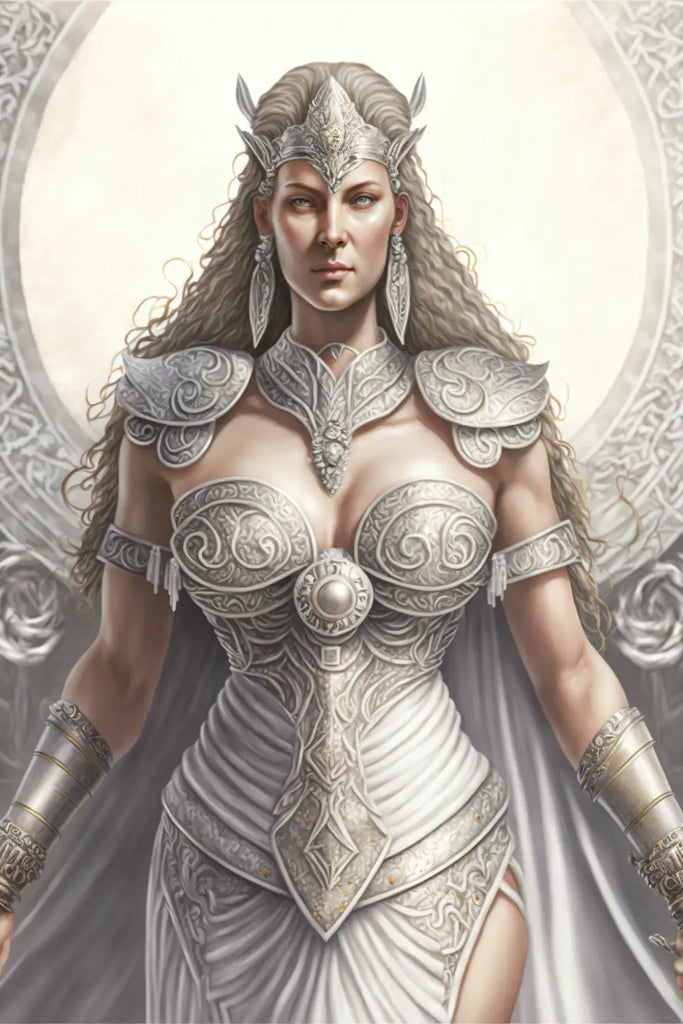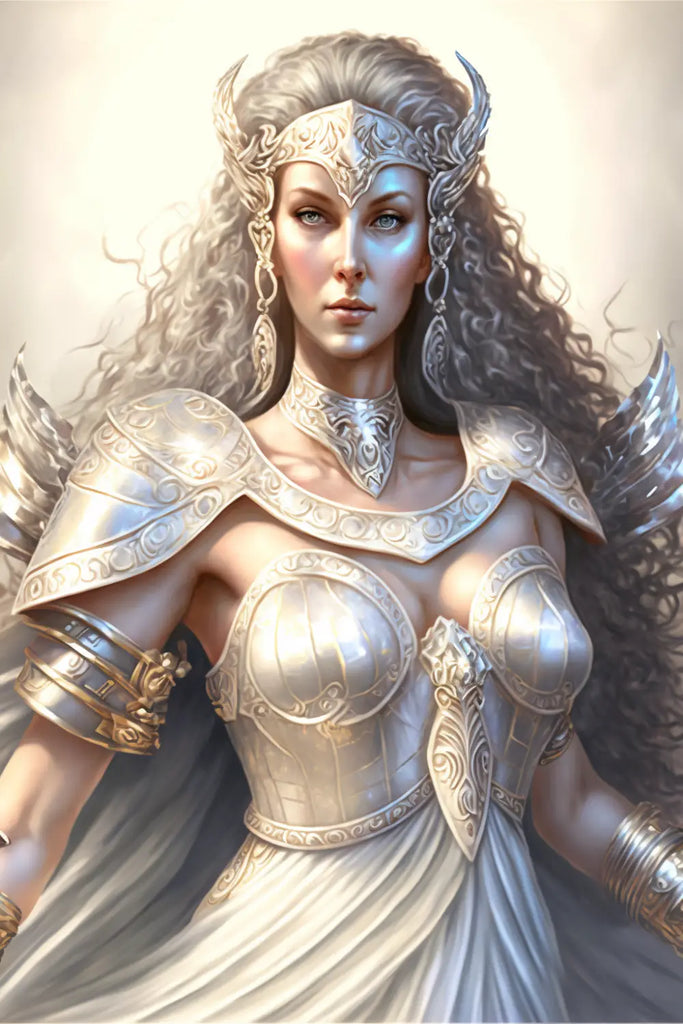Once upon a time, when gods and goddesses ruled the heavens and earth, there reigned a powerful couple atop Mount Olympus. Zeus, the king of the gods, and his wife, Hera, the queen of the heavens, embodied the epitome of divine power. However, behind their formidable union, a storm was brewing. In this fascinating tale, we delve into the intricate web of Hera's elaborate schemes as she sought vengeance against her husband's countless infidelities.
Zeus, known for his notorious romantic escapades, often left his wife feeling betrayed and vengeful. Hera, the goddess of marriage and family, saw these indiscretions as a direct affront to her honor and authority. To preserve her dignity and restore balance, she would stop at nothing to exact her revenge on Zeus and his mortal and divine conquests.

As the immortal queen of Olympus, Hera employed various strategies to disrupt Zeus's relationships and punish his paramours. Cunning and resourceful, she used her divine powers to weave a complex tapestry of deception, manipulation, and punishment.
One of the most infamous examples of Hera's wrath was her retribution against Zeus's lover, Io. When Hera discovered Zeus's affair with the mortal maiden, she transformed the unsuspecting Io into a cow. To ensure Io's torment, Hera sent a gadfly to sting her relentlessly as she roamed the earth, never finding respite from her pain.

Another tale of Hera's vengeance took place during Zeus's tryst with the nymph Semele. Hera, disguising herself as an old woman, convinced Semele to ask Zeus to reveal his true form. Knowing the mortal's inability to withstand the full might of his divine presence, Zeus's unmasking led to Semele's tragic demise.
Hera's cunning also extended to her husband's divine lovers. When Zeus fell in love with Leto, who was pregnant with his children Apollo and Artemis, Hera cursed the expectant mother. The vengeful queen forbade any land from offering Leto a place to give birth, forcing her to wander the earth in search of sanctuary. Eventually, Leto found refuge on the floating island of Delos, where she birthed her divine twins.
In her pursuit of vengeance, Hera's schemes often targeted not only Zeus's lovers but also their offspring. When Hercules, the son of Zeus and Alcmena, was born, Hera unleashed her fury upon the child. She sent two serpents to kill the infant Hercules in his cradle, but the demigod's incredible strength allowed him to strangle the snakes and survive.

Hera's animosity towards Hercules did not end with his childhood. As the hero set out to complete his twelve labors, Hera continually attempted to thwart his progress. Whether through direct interference or manipulation of other gods and mortals, she ensured that Hercules's path was never an easy one.
Though many of Hera's schemes were rooted in her jealousy and wrath, there were moments where she displayed a more compassionate side. In the story of Echo and Narcissus, Hera punished the nymph Echo for distracting her from Zeus's affairs by taking away her voice. However, when the heartbroken Echo died of unrequited love, Hera took pity on her and transformed her into a disembodied voice, allowing her to live on forever.

Despite her numerous plots and machinations, Hera's quest for vengeance never seemed to deter Zeus from his unfaithful ways. Instead, their eternal struggle became a testament to the complex nature of love and power in the realm of the gods.
As the queen of the heavens, Hera's resourcefulness and determination were a force to be reckoned with. Her relentless pursuit of retribution against Zeus and his lovers created a ripple effect that reached beyond the realms of Mount Olympus, impacting the lives of mortals and immortals alike. Yet, in her quest for justice, Hera occasionally revealed a softer, more empathetic side, proving that even the gods were not immune to the complexities of love and loss.

Throughout the ages, Hera's schemes continued to evolve and adapt. When Zeus fell for the beautiful Alcmene, Hera saw an opportunity to use her husband's indiscretion to her advantage. She tricked Zeus into swearing an oath that the next male child born in the house of Perseus would become the ruler of Mycenae. When the time came for Alcmene to give birth to Zeus's child, Hera delayed the birth and ensured that another child, Eurystheus, was born first, thus securing the throne for him instead of the intended Hercules.
In another instance, Hera's vengeance took a more indirect approach. As the patron goddess of Argos, she manipulated events to lead the city's hero, Bellerophon, to attempt to fly to Mount Olympus on the winged horse Pegasus. This act of hubris against the gods resulted in Bellerophon's downfall, as Zeus sent a gadfly to sting Pegasus, causing Bellerophon to fall to his death.
As Hera's desire for vengeance continued to drive her actions, her influence extended to the mortal realm, shaping the lives of heroes and ordinary individuals alike. She aligned herself with the Greek hero Jason during his quest for the Golden Fleece, seeking to use him as a pawn in her ongoing struggle against her husband's infidelities. Though her ultimate goal remained vengeance against Zeus, her involvement in the lives of mortals often had far-reaching consequences, weaving an intricate web of fate and destiny that would shape the course of human history.

Despite the countless tales of Hera's vengeance, her relationship with Zeus remained a defining aspect of her divine nature. The eternal strife between the king and queen of the gods served as a constant reminder of the tumultuous dynamics of love, jealousy, and power that governed the lives of both mortals and immortals. As a symbol of marriage and family, Hera's unwavering quest for retribution highlighted the complex and contradictory nature of these relationships, which continue to captivate and intrigue us to this day.
In conclusion, the legend of Hera's vengeful schemes against Zeus's infidelities serves as an enduring testament to the intricate web of love, jealousy, and power that defines the world of the gods. As the queen of the heavens, Hera's eternal strife against her husband's betrayals reminds us of the often tumultuous nature of love and relationships, offering a compelling narrative that continues to resonate with audiences across time and cultures.
















